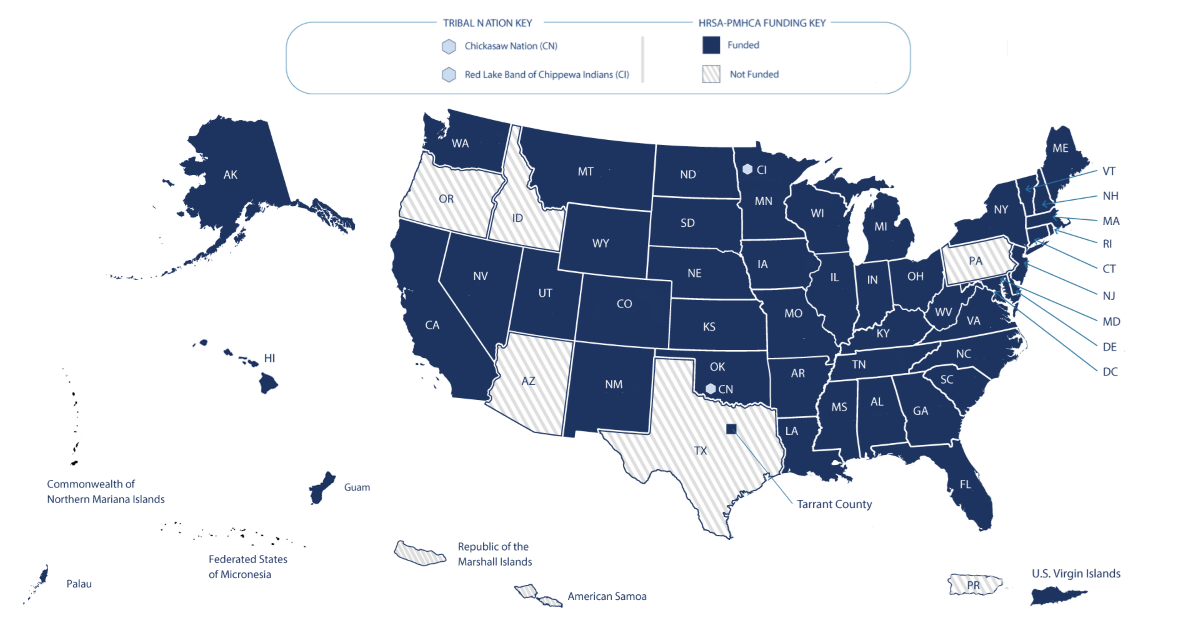Interested in a teleconsultation? Find a list of state and regional teleconsultation lines for providers.
To meet children's behavioral health needs, our programs help pediatric health professionals with consultation, training, resources, and referrals. This support helps them effectively add behavioral health to routine checkups.
Featured resources
Why is this program needed?
More than ever, pediatric health professionals are seeing children who struggle with anxiety, depression, and other behavioral concerns. Many of these professionals need help to provide these children the care they need.
Which pediatric health professionals can benefit from this program?
This program supports professionals in pediatric, emergency department, and school settings.
How do awardees support these pediatric health professionals?
Awardees organize pediatric mental health care teams. These teams are made up of:
- Child and adolescent psychiatrists
- Care coordinators
- Other licensed behavioral health professionals (such as psychologists, social workers, and mental health counselors)
Professionals can contact these teams by phone.
What happens when a health professional calls the phone lines?
When a pediatrician or other health professional calls the service, the experts:
- Assess the patient’s situation
- Recommend treatment options
- Refer callers to other specialists, as needed
How does this build workforce capacity?
The teams help pediatric health professionals add behavioral health services to their practice by:
- Equipping them with knowledge, skills, practice, and attitudes to treat a child themselves or to understand when to refer the child to another specialist
- Offering educational webinars so professionals can better screen, identify, treat, and refer children with behavioral health conditions
- Creating directories of specialists in the pediatrician’s service area and resources to address a child’s needs
Like to see what state-level programs look like?
Watch these videos from our awardees.
Where are these programs?
We have 54 programs. They reach:
- 46 states
- The District of Columbia
- The U.S. Virgin Islands
- The Republic of Palau
- The Chickasaw Nation
- The Red Lake Band of Chippewa Indians
- The Federated States of Micronesia
- The Commonwealth of Northern Mariana Islands
- Guam

Map of the United States and territories showing which areas received HRSA PMHCA funding.
HRSA-PMHCA funded: Alabama; Alaska; Arkansas; California; Colorado; Commonwealth of Northern Mariana Islands; Connecticut; Delaware; District of Columbia; Federated States of Micronesia; Florida; Georgia; Guam; Hawaii; Illinois; Indiana; Iowa; Kansas (schools; Kentucky; Louisiana; Maine; Maryland; Massachusetts; Michigan; Minnesota; Mississippi; Missouri; Montana; Nebraska; Nevada; New Hampshire; New Jersey; New Mexico; New York; North Carolina; North Dakota; Ohio; Oklahoma; Palau; Rhode Island; South Carolina; South Dakota; Tennessee; U S Virgin Islands; Utah; Vermont; Virginia; Washington; West Virginia; Wisconsin; Wyoming. In addition to states and territories, Tarrant County, TX received funding (the rest of the state did not receive funding); the Chickasaw Nation in Oklahoma received funding; and the Red Lake Band of Chippewa Indians (CI) in Minnesota received funding.
Not HRSA-PMHCA funded: American Samoa; Arizona; Idaho; Oregon; Pennsylvania; Puerto Rico; Republic of the Marshall Islands; Texas.
Recent awardees
Find awardee names, locations, and funding information:
Program expansion
- 2018 – 2019: $10 million funded 21 programs
- 2021 – 2022: $80 million funded 29 programs through 2025
- 2022: $80 million awarded over 4 years
- Awards expanded to include hospital emergency departments and schools.
- Forty-nine existing programs received expansion awards.
- Three organizations received funding to provide help to the 49 programs. They are:
- 2023: $19 million awarded to 25 programs
(Awards to the AAP and EIIC continue through 2024)
More information
Jobs
News & events
Stay up-to-date with MCHB: sign up for newsletters
Contact us
Need more information, or have a specific question? Email AskPMHCA@hrsa.gov